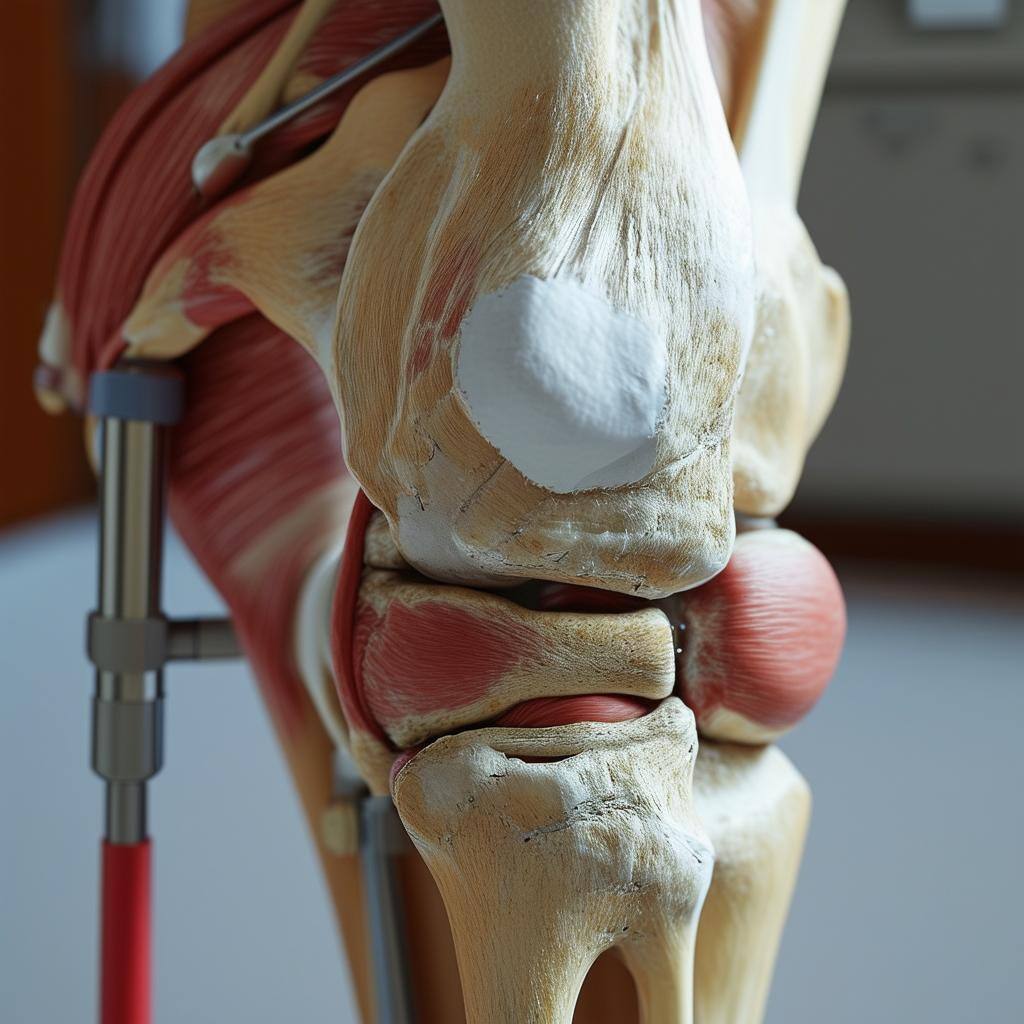
What Is a Hand Surgeon?
A hand surgeon is a medical specialist who focuses on diagnosing, treating, and managing conditions related to the hand, wrist, and forearm. These experts are not limited to surgical solutions; they also offer non-surgical treatments to address various ailments.
Importance of Hand Surgeons in Healthcare
Hand surgeons play a crucial role in healthcare by:
Restoring Functionality: Helping patients regain full use of their hands after injuries or medical conditions.Pain Management: Providing relief from chronic pain caused by arthritis or other disorders.
Improving Quality of Life: Enabling better performance of daily activities through effective treatment plans.
Overview of Specialized Training in Hand Surgery
Becoming a hand surgeon involves extensive specialized training, including:
- Medical Degree: Completion of medical school.
- Residency: In-depth training in either orthopedic surgery, plastic surgery, or general surgery.
- Fellowship: Additional specialized training in hand surgery.
- Certification: Obtaining board certification to ensure a high standard of practice.
The rigorous training ensures that hand surgeons are well-equipped to handle complex conditions and provide the best possible care.
For those searching for a "hand doctor near me" or "hand specialists near me," finding a qualified orthopedic hand doctor can be essential for effective treatment. If interested in related procedures like shoulder replacements, you can find TopDoc's Total Shoulder Replacement Procedure Details helpful. This resource provides comprehensive information on how to diagnose if the procedure is required, what the procedure entails, and how computer-assisted treatments can help ensure faster recovery timelines. Also, understanding the TopDoc Community Standards for Providers can be beneficial when choosing your healthcare provider.
Different Types of Hand Surgeons
Hand surgeons specialize in treating conditions related to the hand, wrist, and forearm. There are different types of hand surgeons, each with unique expertise and training:
1. Orthopedic Hand Doctor
These specialists focus on the musculoskeletal system, addressing issues related to bones, joints, ligaments, tendons, and muscles. They often treat fractures, arthritis, and tendon injuries. An orthopedic hand doctor is particularly skilled in surgical procedures to repair or reconstruct bones and soft tissues.
2. Plastic Hand Surgeon
This type of surgeon emphasizes reconstructive and cosmetic procedures. They handle complex injuries involving skin, nerves, blood vessels, and tendons. Plastic hand surgeons frequently perform surgeries to restore functionality and appearance after trauma or congenital deformities.
3. General Hand Surgeon
Typically trained in general surgery with a subspecialty in hand surgery. They possess a broad skill set to handle a variety of common hand conditions. While they may not have as specialized training as orthopedic or plastic hand surgeons, they are well-equipped to manage many hand-related issues.
Hand surgeons play a crucial role in diagnosing and treating various conditions affecting the hands. For those seeking specialized care, it's essential to find the right type of surgeon for their specific needs.
For further assistance in finding a skilled hand surgeon near you, visit TopDoc to book an appointment with top doctors in your area. With TopDoc's concierge service assigned to you, you will receive expert coordination of your care including priority access to top doctors, the latest technology, and insurance prior authorizations to avoid surprise healthcare bills.
Understanding the distinctions between these specialists can help patients make informed decisions about their care. For detailed information on provider terms of use at TopDoc, refer to their Provider Terms of Use page.
Conditions Treated by Hand Surgeons
Common Hand, Wrist, and Forearm Conditions
Hand surgeons specialize in diagnosing and treating a wide range of conditions affecting the hand, wrist, and forearm:
- Arthritis: This condition involves inflammation of the joints, leading to pain and stiffness. Common types include osteoarthritis and rheumatoid arthritis.
- Carpal Tunnel Syndrome: A condition caused by pressure on the median nerve in the wrist, resulting in numbness, tingling, and weakness in the hand.
- Fractures: Broken bones in the hand or wrist can occur due to trauma or accidents.
- Ganglion Cysts: Non-cancerous lumps that commonly develop along tendons or joints of the wrists and hands.
- Infections: These can range from simple skin infections to deeper infections involving tendons and bones.
- Nerve and Tendon Injuries: Damage to nerves or tendons can significantly affect hand functionality.
- Trigger Finger: A condition where a finger gets stuck in a bent position due to inflammation of the tendons.
How Hand Surgeons Diagnose and Treat These Conditions
Hand surgeons use various diagnostic tools and methods to identify these conditions:
- Physical Examination: Assessing the range of motion, strength, and symptoms of the affected area.
- Imaging Tests: X-rays, MRIs, or CT scans help visualize internal structures such as bones, joints, and soft tissues.
- Nerve Conduction Studies: These tests measure how well nerves conduct electrical signals.
Treatment options vary depending on the condition's severity:
- Non-Surgical Treatments: These include physical therapy, steroid injections, splinting, and medications to reduce pain and inflammation.
- Surgical Treatments: In some cases, surgery may be necessary to repair fractures, remove ganglion cysts, or release compressed nerves.
Example: For carpal tunnel syndrome, splinting the wrist at night or using anti-inflammatory medications may be recommended before considering surgery.
Severe cases of trigger finger might require a surgical procedure known as tenolysis to release the tendon.
For more detailed guidelines on patient care standards when dealing with these conditions, you might find TopDoc - Community Standards, which provides comprehensive information on patient care standards, helpful.
Comprehensive Treatment Approaches for Hand Conditions
Hand surgeons use both surgical and non-surgical approaches to treat various conditions. The choice of treatment often depends on the severity and specific nature of the problem.
Surgical Approaches
Surgery may be necessary for severe cases, such as:
- Fractures or breaks
- Severe tendon injuries
- Carpal tunnel syndrome
- Complex ligament tears
These surgeries aim to restore function, relieve pain, and prevent further complications. Procedures can range from simple repairs to complex reconstructions.
Non-Surgical Approaches
Non-surgical methods are often preferred when possible. These can include:
- Physical therapy: Helps improve mobility and strength.
- Steroid injections: Reduce inflammation and pain.
- Medications: Manage symptoms and promote healing.
Role of Physical Therapy, Steroid Injections, and Medications in Recovery
Physical therapy plays a crucial role in recovery by:
- Enhancing flexibility
- Strengthening muscles
- Preventing further injury
Steroid injections are used to:
- Alleviate pain
- Decrease inflammation
Medications, like anti-inflammatories, help manage pain and swelling, supporting the body’s natural healing process.
Combining these treatments often results in a comprehensive plan tailored to each patient's needs. This multi-faceted approach ensures that patients receive the best possible care for their specific hand condition.
Types of Hand Surgeries Performed by Specialists
Hand surgeons perform various surgical procedures to treat different conditions and injuries affecting the hand, wrist, and forearm. Here are some common types of hand surgeries and their purposes:
1. Skin Grafts
Used for treating severe burns, injuries, or infections where a significant amount of skin has been lost. Surgeons take healthy skin from another part of the body and graft it onto the affected area to promote healing.
2. Tendon Repair
Necessary for injuries involving torn or damaged tendons, which can occur due to trauma or overuse. The goal is to restore functionality by reattaching or reconstructing the tendon.
3. Joint Replacement (Arthroplasty)
Often performed for patients suffering from severe arthritis or joint damage. It involves replacing a damaged joint with an artificial implant to relieve pain and improve movement.
4. Replantation (Microsurgery)
This complex procedure is used to reattach severed fingers, hands, or arms. Surgeons use microsurgical techniques to reconnect blood vessels, nerves, and tissues.
Hand surgeons are equipped with specialized skills to handle these intricate procedures, ensuring patients receive the best possible care for their specific hand conditions.
When to See a Hand Specialist?
Experiencing issues with your hands can be concerning. Knowing when to see a hand specialist is crucial for timely and effective treatment. Here are some symptoms that warrant a visit:
- Pain: Persistent or severe pain in your hand, wrist, or forearm can indicate underlying conditions that need professional attention.
- Reduced Function: Difficulty performing everyday tasks, such as typing, cooking, or writing, may suggest the need for specialized care.
- Reduced Range of Motion/Grip Strength: Struggling to fully move your fingers or experiencing a weak grip can be signs of potential problems that should not be ignored.
- Difficulty Holding Items: Dropping objects frequently or having trouble holding onto items can indicate issues that require an expert's evaluation.
Addressing these symptoms early by consulting a hand doctor near you ensures better outcomes and a quicker return to normal activities.
Consulting a Hand Surgeon: Diagnosis and Initial Evaluation
When you visit a hand specialist, it's helpful to know what to expect during the diagnostic process. This can help alleviate any concerns or worries you may have.
Initial Consultation
During your first appointment, the hand surgeon will:
- Review your medical history, including any past injuries or conditions affecting your hand, wrist, or forearm.
- Perform a thorough examination of your hand to assess your pain levels, range of motion, and any visible deformities.
Diagnostic Tests
In order to accurately diagnose your condition, the hand surgeon may need to perform several tests, such as:
- X-rays: These can help visualize the bone structures in your hand and identify any fractures or dislocations.
- MRI/CT Scans: These imaging tests provide detailed images of the soft tissues in your hand, such as ligaments and tendons.
- Ultrasound: This test is useful for diagnosing soft tissue injuries in real-time.
- Nerve Conduction Studies (NCS): These tests assess the function of your nerves and can help detect conditions like carpal tunnel syndrome.
Discussion of Findings
After completing the examination and diagnostic tests, the hand surgeon will discuss their findings with you. This may include:
- Explaining your diagnosis using visuals or models if necessary.
- Creating an initial treatment plan based on the diagnosis, which could involve non-surgical methods like physical therapy or medications.
Follow-Up Appointments
Regular follow-up appointments are important to ensure that the chosen treatment is effective for you. During these appointments, the hand surgeon will monitor your progress and make any necessary adjustments to your treatment plan for optimal recovery.
Finding the Right Hand Surgeon for You
When looking for a qualified hand surgeon, it is essential to consider various factors to ensure you receive the best care possible. Here are some tips:
Research and Referrals
- Start with your primary care doctor: They can provide recommendations based on your medical history.
- Ask for referrals: Friends, family, or colleagues may have suggestions.
- Online searches: Use keywords like "hand doctor near me" or "hand specialists near me" to find local experts.
Credentials and Experience
- Board Certification: Verify that the surgeon is board-certified in hand surgery.
- Experience Matters: Look for a surgeon with substantial experience in treating your specific condition.
- Hospital Affiliations: Check if they are affiliated with reputable hospitals.
Reviews and Testimonials
- Patient Reviews: Read online reviews to gauge patient satisfaction.
- Testimonials: Look for success stories on their website or social media pages.
Consultation and Comfort
- Initial Consultation: Schedule a meeting to discuss your condition and treatment options.
- Comfort Level: Ensure you feel comfortable discussing your concerns and questions with the surgeon.
By considering these factors, you can find a skilled hand doctor specialist who meets your needs and provides quality care.
The Important Role of an Orthopedic Hand Doctor
An orthopedic hand doctor plays a crucial role in treating complex conditions affecting the hand, wrist, and forearm. These specialists are highly trained in dealing with the musculoskeletal system, which includes bones, muscles, tendons, and ligaments.
Why Choose an Orthopedic Hand Doctor?
- Expertise in Musculoskeletal Conditions: Orthopedic hand doctors have extensive knowledge about the anatomy and functionality of the hand and arm. They can diagnose and treat a wide range of issues from fractures to tendon injuries.
- Specialized Surgical Skills: They are skilled at performing delicate surgeries that require precision and deep understanding of the hand's structure. Whether it's repairing a torn ligament or fixing a broken bone, their surgical skills are unmatched.
Common Conditions Treated
- Carpal Tunnel Syndrome: This condition causes pain and numbness in the hand due to pressure on the median nerve.
- Arthritis: Joint inflammation can severely limit hand movement and function.
- Fractures and Dislocations: Injuries to bones and joints need immediate and specialized care to ensure proper healing.
Comprehensive Care Approach
Orthopedic hand doctors often work closely with other healthcare providers such as:
- Physical Therapists: To facilitate recovery through targeted exercises.
- Occupational Therapists: To help patients regain their daily functional abilities.
Importance of Early Intervention
Seeing an orthopedic hand doctor early can lead to:
- Better Outcomes: Early diagnosis and treatment prevent complications.
- Reduced Pain: Prompt medical attention alleviates discomfort more effectively.
By choosing an orthopedic hand doctor, patients benefit from specialized care tailored to the unique complexities of their conditions.
Final Thoughts
A hand surgeon plays a crucial role in diagnosing and treating conditions affecting the hand, wrist, and forearm. They are experts in their field and provide specialized care based on individual needs.
- Orthopedic hand doctors are important for complex bone and joint issues.
- Plastic hand surgeons specialize in delicate soft tissue repairs.
- General hand surgeons offer a wide range of services for both surgical and non-surgical needs.
If you're experiencing symptoms like ongoing pain, limited movement, or unusual swelling in your hand, it's worth consulting a hand doctor specialist for potential treatment options and an improved quality of life. You can use online resources to find qualified professionals near you.
The combination of appropriate surgical methods, physical therapy, medications, and other treatments is key to achieving the best results for patients. By working with an orthopedic hand doctor, you can have confidence that your condition is being managed by a skilled professional who is committed to restoring function and reducing discomfort.
FAQs (Frequently Asked Questions)
What Is a Hand Surgeon?
A hand surgeon is a specialized medical professional who focuses on the diagnosis, treatment, and surgical procedures related to conditions and injuries affecting the hand, wrist, and forearm. They play a crucial role in addressing a wide range of hand-related health issues and are an integral part of the healthcare system.
Different Types of Hand Surgeons
Hand surgeons can specialize in different areas such as orthopedic hand surgery, plastic hand surgery, or general hand surgery. Orthopedic hand surgeons focus on musculoskeletal issues, plastic hand surgeons specialize in reconstructive procedures, and general hand surgeons provide comprehensive care for various hand conditions.
Conditions Treated by Hand Surgeons
Hand surgeons treat a variety of conditions including arthritis, carpal tunnel syndrome, fractures, ganglion cysts, infections, nerve and tendon injuries, and trigger finger. They use their expertise to diagnose these conditions accurately and develop personalized treatment plans for each patient.
Comprehensive Treatment Approaches for Hand Conditions
Hand surgeons employ both surgical and non-surgical approaches to treat hand conditions. Additionally, they may recommend physical therapy, steroid injections, and medications as part of a comprehensive treatment plan to promote recovery and improve overall function.
Types of Hand Surgeries Performed by Specialists
Hand surgeons perform various types of surgeries including skin grafts, tendon repair, joint replacement (arthroplasty), and replantation (microsurgery) to address specific hand-related issues. Each type of surgery serves a distinct purpose in restoring hand function and alleviating symptoms.
When to See a Hand Specialist?
It is advisable to see a hand specialist if you experience symptoms such as persistent pain, reduced function, decreased range of motion or grip strength, or difficulty holding items. These symptoms could indicate underlying hand-related health issues that require professional evaluation and treatment.
Consulting a Hand Surgeon: Diagnosis and Initial Evaluation
When consulting a hand surgeon, patients can expect a thorough diagnostic process involving physical examinations, imaging tests, and detailed discussions about their symptoms and medical history. This initial evaluation helps the hand surgeon accurately diagnose the condition and develop an appropriate treatment plan.
Finding the Right Hand Surgeon for You
To find a qualified hand surgeon in your area, consider seeking recommendations from primary care physicians or trusted healthcare professionals. It's important to research the credentials and experience of potential hand surgeons to ensure they have the expertise needed to address your specific needs effectively.
The Crucial Role of an Orthopedic Hand Doctor
An orthopedic hand doctor plays a crucial role in addressing musculoskeletal issues affecting the hand, wrist, and forearm. They are specially trained to diagnose and treat bone, joint, muscle, ligament, tendon, and nerve problems in these areas with a focus on restoring function and mobility.



Comments (0)